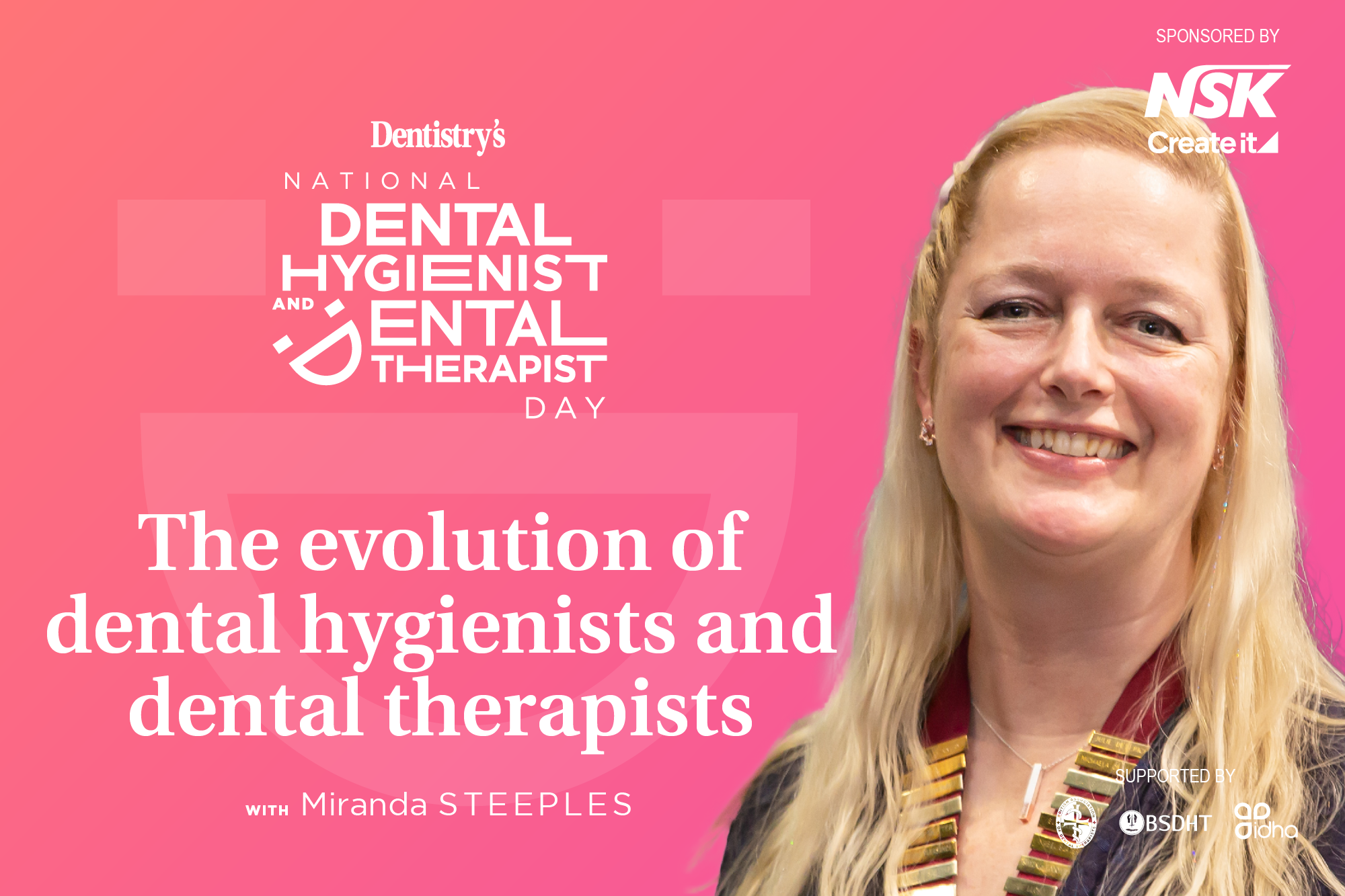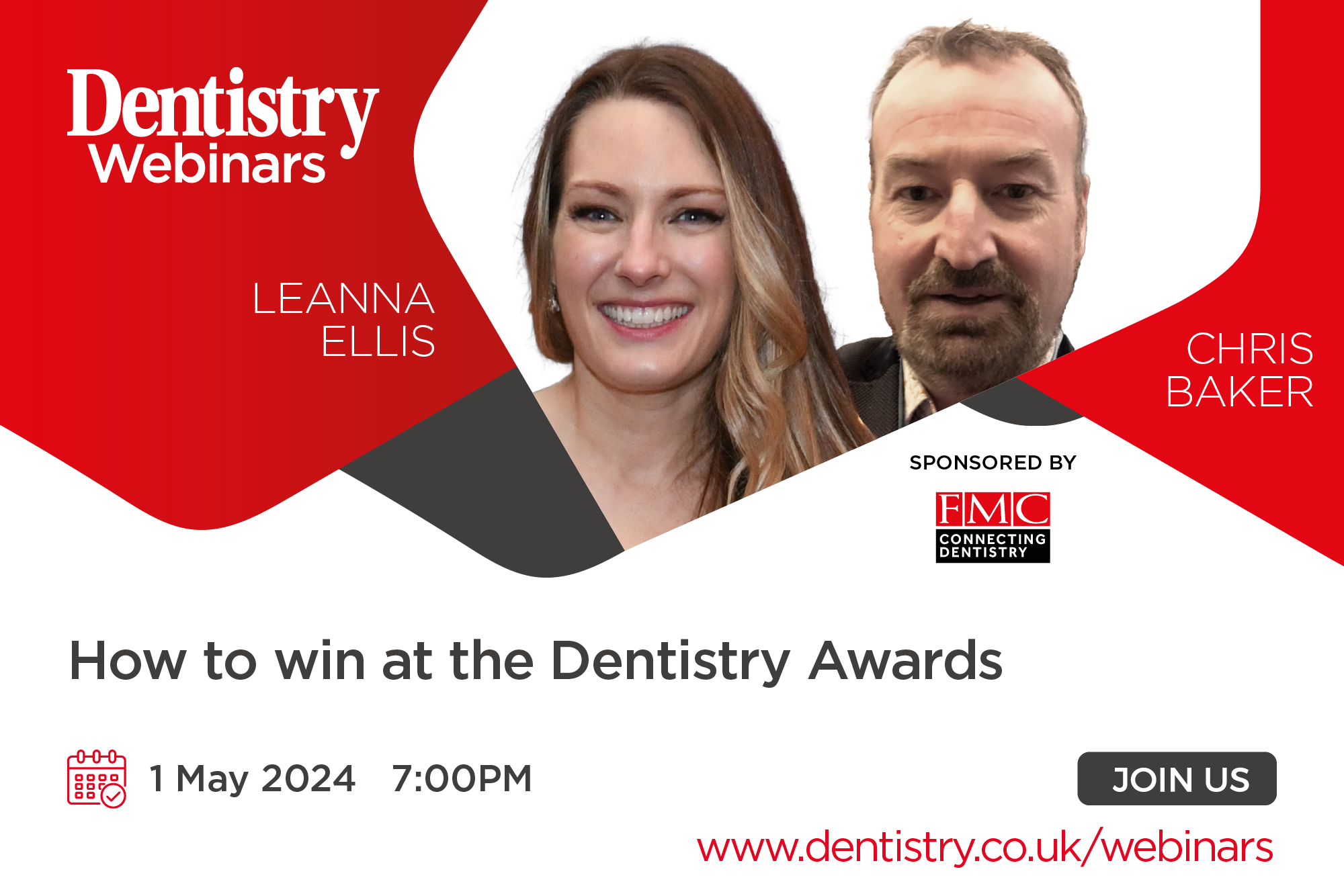
‘This is such an exciting time’: In the lead up to National Dental Hygienist and Dental Therapist Day, Miranda Steeples looks back at how these two roles have evolved throughout history.
From dental auxiliaries to dental care professionals
Around one hundred years ago, dentistry was in turmoil. Dentists were trying to establish themselves as a profession separate to medicine, and working to prevent illegal practice. The Schools Dental Service (SDS) was where children received their dental treatment, and ‘dental dressers’ provided this under the direction of a dentist.
Around the same time, another group of ‘dental auxiliaries’ were dental hygienists (DH) who were providing periodontal care and preventive advice to servicemen at home from the war. The Dentist’s Act (1921) permitted DH to undertake ‘minor dental work’, which the British Dental Association (BDA) opposed due to fears they were ‘diluting’ the profession of dentistry. In 1942, the BDA were successful in stopping this. However, in 1945, the recommendation was made for dentistry to have its own regulatory body, and alongside this, provision was made for the training and supervision of DH.
The year 1949 saw the inception of the DH training school at the Eastman, in London, and the British Dental Hygienists Association (BDHA) was formed, later becoming the British Society of Dental Hygiene & Therapy (BSDHT) in 2006.
Dentistry is delighted to announce National Dental Hygienist and Dental Therapist Day – a brand new national day dedicated to celebrating the invaluable contributions of dental hygienists and dental therapists.
In association with the British Association of Dental Therapy (BADT), the British Society of Dental Hygiene and Therapy (BSDHT) and the Irish Dental Hygienist’s Association (IDHA), this new national day will take place on 1 May. This is to commemorate the day direct access came into force for dental hygienists and dental therapists on 1 May 2013.
It was some years later, in 1957, that the General Dental Council (GDC) was established and, as part of this negotiation with the government, it was mandated that dental therapists (DTh) should also be trained. This commenced in 1960 at New Cross in London. At this time, DH were permitted to work in general dental practice, but it wasn’t until 2002 that DTh could do the same.
It’s hard to imagine that it took until 2006 for all dental professionals to become GDC registrants, which only reached completion in 2008. During this time, the collective title for those who were not dentists changed from ‘dental auxiliaries’ to ‘professionals complementary to dentistry, to the dental care professionals we are today.
The introduction of direct access
Direct access in the private sector was introduced in 2013, and for many it will be impossible to imagine a time when we weren’t able to do this. It is now taken for granted, much like the rights to undertake the scope of practice we have, to work in general practice, and that we are all registered dental professionals.
In fact, the progress that has been made in the past 100 years or so has been profession-led, in part helped by the government needs of the time, but more so by the professional organisations, BSDHT and the British Association of Dental Therapists (BADT).
One can look back to 2022 when direct access was introduced into the NHS in England, and compare it to the time of the SDS some 100 or so years before. The SDS was underfunded and there was a shortage of dentists wanting to work in this scheme. You can draw a parallel to today with the NHS dentistry contract, where once again we the are the professions brought in by the government. Except, unlike then, when the BDA fought to prevent us treating patients, now there is no resistance.
This is largely because there are limited personal benefits to us doing this work. One might consider that it offers professional fulfilment, and a reminder of why we came into a dental care professional role. But there are limited financial rewards, and certainly no parity with our colleagues who are dentists.
Scope of practice
As two distinct dental professional groups, we are more than capable of offering NHS dental treatment to patients within our scope, but what is needed for this to work, is a change in conditions, and a change in culture, both inside and outside of the profession.
Oral healthcare team members need to have an understanding, an appreciation and a respect for what their colleagues are capable of. In understanding all this, there needs to be the will to educate the public in who we are and what we can do. To offer reassurance that they are safe in our chairs, we know what we are doing, and this comes via validation from all of our colleagues.
Dentistry has changed, the population has changed. Technology, and developments in materials and knowledge, have progressed so much now that much of the restorative work is unrecognisable to how it used to be. What hasn’t changed is disease prevention and oral health promotion. Dentistry is now less reactive and more preventive in its nature – more of a collaboration between clinician and patient, and less something that is ‘done to them’.
This is a strength of DH and DTh – this is what we do.
It is important to celebrate our professions and to consider how far they have come in a relatively short period of time. We are the cornerstones of prevention; the future of oral healthcare for our patients and the public. DH and DTh are valued members of the oral healthcare team, opening up the opportunity of access to care for patients and can manage some patient’s oral health from the cradle to the grave.
‘An exciting time’
Now, bar some additional training, we have the authority to work to our full autonomy. This is such an exciting time; we can undertake further professional education such as a master’s or a PhD, we can work in education, research, within dental industry, or own and run our own dental practice, and be the constant in a patient’s life.
There are some who wish for more skills to be added to our scope of practice, but this will, in my opinion, mean we lose some of the essence of what it means to be a DH or DTh; a specialist in prevention. If the scope expands, we move into the territory of being a dentist, and if that is desired, then one can train to be a dentist. Others want prescribing rights, again one could go and be a dentist. But with these further responsibilities, which are not wanted by the whole profession, may come additional financial burdens.
As we are offered more responsibility within the NHS, we need to ensure that the environment is fair and equitable. We are not someone’s cheaper workforce. We are not here to be taken advantage of.
BSDHT are here for you, every step of the way. From your student training to when you retire and the president sends you a congratulatory card. This is one of the nicest jobs that I have, writing a card to someone I have never met, a DH or DTh who has spent their lifetime caring for patients in their community.
And that is a beautiful thing. We are one big group of dental care professionals; we are all dental professionals who care. And that is something to celebrate.
Follow Dentistry.co.uk on Instagram to keep up with all the latest dental news and trends.



